Nov
19
2013
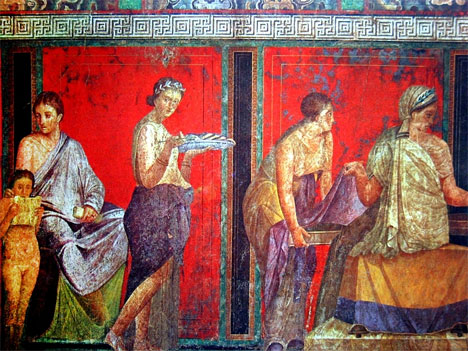 Part III – The Feast of Clouds
Part III – The Feast of Clouds
“But Peter said, ‘I have no silver and gold, but what I do have I give to you.”’ (Acts 3:6)
Israel consistently failed to keep the final feast, the Feast of Sukkot, because she took her calling to be elitist rather than priestly. She thought her calling, gifts and purification were for herself, rather than for the healing of the nations.
Continue reading
Comments Off | tags: Acts, Babylon, Baptism, Covenant Theology, Daniel, Esther, Feasts, Lampstand, Paul, Pentecost, Tabernacles | posted in Bible Matrix, Biblical Theology, The Last Days, The Restoration Era
Nov
7
2013

Part II – The Black Sabbath
“For the cloud of the Lord was on the tabernacle by day, and fire was in it by night,
in the sight of all the house of Israel throughout all their journeys.” (Exodus 40:8)
Continued from The Household of Faith – 1
“You shall kindle no fire in all your dwelling places on the Sabbath day.” (Exodus 35:3)
Israel took the man who was collecting kindling on the Sabbath and nipped his sin in the bud. His intentions were plain, so they wanted to know what should be done with him. It sounds brutal, but Exodus and Leviticus give us a plethora of strange laws for Israelites. At least, they seem strange until we understand that not only was Sinai replicated in the Tabernacle, the Tabernacle was to be replicated in every Israelite tent, and indeed in every Israelite. Every household was a tent of God, a cloud, and every Israelite a burning star in the sky. The tribes were, after all, arranged around the tent in military “constellations.” This new Black Sabbath was to reconnect every tent with its source, the tent of God.
Continue reading
1 comment | tags: Exodus, Feasts, Moses, Tabernacle, Tabernacles | posted in Bible Matrix, Biblical Theology, Creation
Dec
26
2012
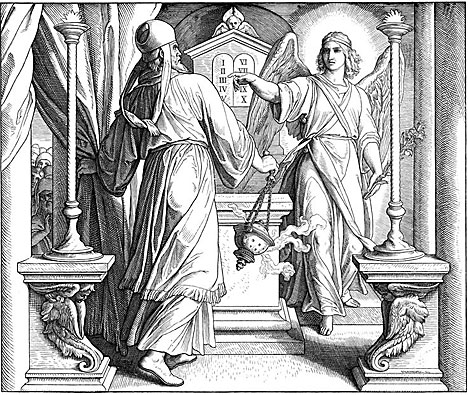
Here’s some interesting calculations concerning the day of Jesus’ birth in relation to Israel’s festal calendar. It was written by Michael Scheifler (a Seventh-day Adventist), and is reproduced here with his permission.
While much of the world celebrates the birth of Jesus Christ on the 25th of December, can the actual day of Jesus’ birth be determined from scripture? This question will be explored in some detail, and will yield a result that is quite intriguing. The first passage we will consider begins with the father of John the Baptist, Zacharias:
Continue reading
Comments Off | tags: 70 Weeks, Bible Chronology, Booths, Christmas, Chronicles, Daniel, Feasts, Luke, Tabernacles, Temple | posted in Biblical Theology, Quotes, The Last Days
Jul
25
2012

God Has You Covered
Parsing Psalms means consulting the Hebrew for the word order. This one was quite difficult, once again because English translations mess with things, and also because the Hebrew author likes to play with the matrix structures to make a point. I find I have to redo sections and keep shaking it up until it all falls into place. Is this sentence part of the previous stanza or the beginning of a new one? Or does this stanza have one line that gets expanded into its own pattern to make a point?
The good thing is that once it shakes out, there are some beautiful surprises. One of the gems in this Psalm is the sentence concerning the sun and the moon. In English it is simply two lines (a parallelism), but in Hebrew it is chiastic. Wonderful.
Continue reading
4 comments | tags: Chiasm, Feasts, Literary Structure, Psalms, Tabernacle, Tabernacles | posted in Bible Matrix, Biblical Theology
Aug
23
2011
or Feasts in Joel 1

The prophets were God’s “Covenant sheriffs,” hammering on the door with the broken contract like repo men from hell. They don’t want your car. They want your blood.
It should not surprise us when their words follow the Covenant structure. The first chapter of Joel is, once you know what you are looking at, a beauty and a terror. The prophet uses the Annual Feasts as a theme. It turns out that the Lord’s rebellious people will be the meat on the table.
Continue reading
Comments Off | tags: Feasts, Joel, Literary Structure, Minor Prophets, Systematic typology, Tabernacle, Tabernacles | posted in Bible Matrix, Ethics
Jul
13
2011
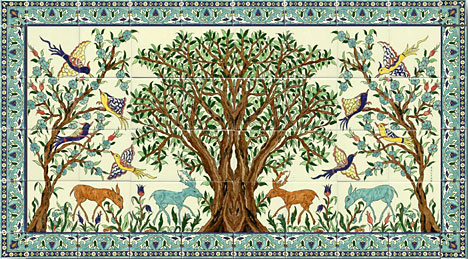
Does Christ’s exhortation to His disciples in John 15 to remain in Him allow for the possibility of unregenerate New Covenant members?
Doug Wilson writes:
“For many Christians, [John 15:1-6] is a ‘problem passage.’ We want Christ to use a different figure. We want Him to be the Marble Box, with us as the individual marbles. When we are saved, we are put into the Marble Box, and we had better watch it, or we might find ourselves taken out of the Marble Box, losing our salvation. Or, if we know that salvation is not a possession of ours, which we could lose, we want the Marble Box to have a great big lock on it, and to be full of elect, non-loseable marbles” (To a Thousand Generations, p. 84).
We agree that the truly elect cannot be lost. We also agree that not all of the Old Covenant people were truly elect. But can we import this “not all Israel are Israel” into the New Covenant order?
Continue reading
3 comments | tags: Baptism, Doug Wilson, Feasts, John Bunyan, Paul, Romans, Tabernacles | posted in Biblical Theology, The Last Days
Jun
8
2011

The debate over infant baptism at Doug Wilson’s blog continues. Pastor Wilson writes:
“The Gentiles were threatened with removal from the same tree the unbelieving Jews had been in. But if this were the tree of salvation, then the elect can lose their salvation — which cannot be defended biblically. And if this is the tree of the covenant, then the point stands” (To a Thousand Generations, p. 36)
This looks logical enough, but trees are a process of maturity, from seed to fruit. So is righteousness, and so is sin.
Continue reading
28 comments | tags: AD70, Baptism, Booths, Doug Wilson, Feasts, Restoration, Revelation, Romans, Tabernacles, Typology | posted in Bible Matrix, Biblical Theology, Quotes, The Last Days, The Restoration Era
Apr
6
2011
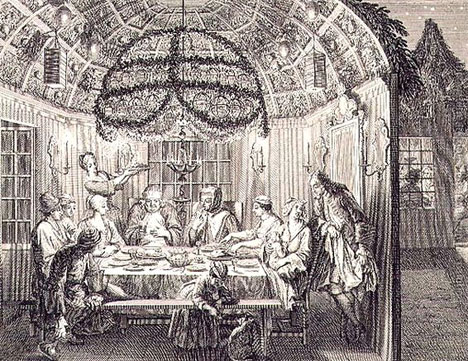
“…how we feast and celebrate is a reflection of our beliefs concerning the salvation of the world.”
Sermon Notes on Deuteronomy 14:22-29 – Part 3
Guest post by Michael Shover
Gathering Clouds
There is another aspect to the Feast of Booths that we need to take into consideration. The sacrifices. During the Feast of Booths, 70 bulls were sacrificed. 13 on the first day, 12 on the second, 11 on the third, 10 on the fourth, 9 on the fifth, 8 on the sixth, 7 on the seventh which equals 70. Then 1 on the last day. Why 70? What is the significance of the number 70? The 70 bulls represented the 70 nations of the world as outlined in Gen. 10. The 1 bull that was sacrificed on the eighth day represented Israel. The 70 bull sacrifices represented the ingathering and atonement for the 70 nations of the world. Salvation was accomplished by Israel for all the nations.
Continue reading
2 comments | tags: Deuteronomy, Genesis, Tabernacles | posted in Biblical Theology
Apr
4
2011

“…how we feast and celebrate is a reflection of our beliefs concerning the salvation of the world.”
Sermon Notes on Deuteronomy 14:22-29 – Part 2
Guest post by Michael Shover
The Garden City
According to Leviticus 23 the Feast of Booths, or The Feast as it was later called, was an eight day celebration.
Continue reading
1 comment | tags: Deuteronomy, Exodus, New Jerusalem, Revelation, Tabernacles | posted in Biblical Theology
Apr
1
2011
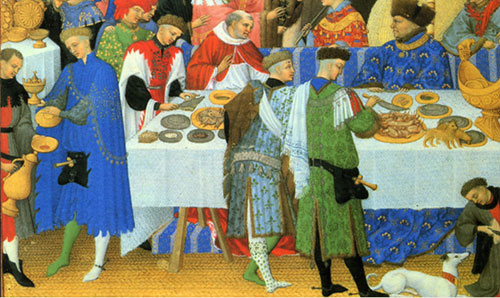
“…how we feast and celebrate is a reflection of our beliefs concerning the salvation of the world.”
Sermon Notes on Deuteronomy 14:22-29 – Part 1
Guest post by Michael Shover
Feasting, the Heart of Evangelism
It has been one of the most unfortunate developments in the history of the Church that we have gotten away from and have forgotten the Biblical mandate to feast before the Lord. We so often lead lives that are shallow in piety and so consuming in busyness that we become forgetful, nay even neglectful of the fact that our God commands such things as, “And you shall spend that money for whatever your heart desires: for oxen or sheep, for wine or strong drink, for whatever your heart desires; you shall eat there before the LORD your God, and you shall rejoice, you and your household.”
Continue reading
Comments Off | tags: Church History, Deuteronomy, Ecclesiology, Evangelism, Feasts, Tabernacles | posted in Biblical Theology, Christian Life
 Part III – The Feast of Clouds
Part III – The Feast of Clouds

































